Keynotes
Keynote speech:
REGULATING CLIMATE FOR NATURE VERSUS REGULATING NATURE FOR CLIMATE
by Johann Köppel, Technical University Berlin/Uppsala University, Campus Gotland and Roel May, Norwegian Institute for Nature Research
For more than a decade, the CWW community has presented the current state of knowledge and perspectives on wind energy’s wildlife implications. Rarely have we seen such a targeted joined effort to bring science on the agenda of developers and regulators. Over the very same time span, our globe faced the hottest years since systematic monitoring, and wildfires and floods accompany our pathways to Croatia. Simultaneously, massive upscaling of wind energy is on the forefront. Thus, how can we ensure to provide knowledge and tools to keep the wind energy and wildlife science – policy – practice gap as close as possible? Have we truly embraced our shared responsibility for both nature and climate? With a set of relevant hypotheses and questions, we wish to provide food for thought to reflect on during the conference, its closing session and in its aftermath.
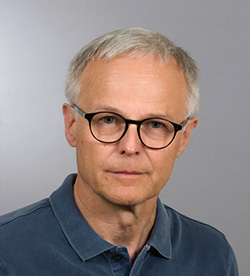
Johann Köppel served as a full professor at the Technische Universität Berlin (Germany) until spring 2023, specializing in environmental impact assessment and a focus on windenergy and wildlife mitigation. He served in CWW’s scientific advisory boards from the onset in 2011. Starting in fall 2023, he will be a guest professor at Uppsala University, Campus Gotland, Sweden.
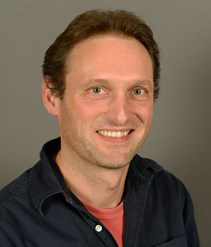
Roel May is Senior Research Scientist at the Norwegian Institute for Nature Research (NINA). His research interest is set in the interface between science and conservation; and is centred on impacts of renewable energy on wildlife and spatial ecology. He was chairperson for the 1st CWW conference in 2011 and served in all consecutive CWW’s scientific advisory boards since then.
Date: Tuesday, 19 September 2023
Time: 10:00 – 11:00
Keynote speech:
TOWARDS SOLVING THE GLOBAL WIND ENERGY-BAT CONFLICT: CURRENT STATE AND FUTURE PERSPECTIVES
by Christian C. Voigt, Leibniz Institute for Zoo and Wildlife Research
Wind energy production is growing rapidly around the world in an effort to reduce greenhouse gas emissions. However, wind energy production is not environmentally neutral and efforts must be made to reconcile the environmental goals of protecting our climate and our biodiversity. Using bats as an example, I will review the state of knowledge on the conflict between wind energy production and bats in Europe and worldwide. I will identify obvious and hidden problems, point out concrete solutions, highlight gaps in our knowledge and formulate perspectives that will help solve an important green-green dilemma.
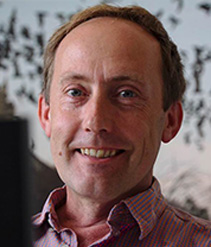
Christian C. Voigt is head of the Department Evolutionary Ecology at the Leibniz Institute for Zoo and Wildlife Research (Leibniz-IZW) and Associate Professor at the Freie Universität Berlin. He received his doctoral degree in 1998 at the University of Erlangen and his Habilitation in 2008 at the Humboldt University of Berlin. As of 2022, Christian has published more than 250 papers in scientific journals and edited/co-edited several open-access books on bats, such as ‘Bats in the Anthropocene: Conservation of bats in a Changing World’. His academic work integrates across scales, bridging the cellular, the organismic and the landscape level. Accordingly, he uses a wide variety of methods ranging from behavioural observations to stable isotopes and spatial tracking. Nowadays, he is working mostly on questions related to the movement ecology and conservation of bats with a special focus on migratory bats, light pollution and wind energy production. Ultimately, he is interested in transforming human-wildlife conflicts into coexistence. Therefore, besides studying wildlife species he also seeks to better understand the human dimensions of conflicts. Christian is co-editor of two journals and scientific advisor to UNEP/EUROBATS, conservation NGOs and the IUCN Bat Specialist Group. In 2022, he received the Gerrit S. Miller Jr. award for outstanding service and contribution to the field of chiropteran biology.
Date: Thursday, 21 September 2023
Time: 09:00 – 10:00
Keynote speech:
THE FUTURE OF CWW
by David Tidhar, Masdar
The Conference on Wind Energy and Wildlife (CWW) has reached an important milestone in this, it’s seventh event. The 7th CWW has exceeded well over 500 in person attendees from over 30 countries, attracting nearly 200 abstract submissions from leading researchers, consultants, stakeholders, industry representatives, project developers and owner-operators, students, regulators, and others. CWW is unusual in that it has no formal organization and all the conferences to-date have been initiated and developed by an iterative group united in a shared vision in the value of this knowledge sharing and networking event. In this presentation, the current Chair of the CWW Scientific Advisory Committee will present some of the key challenges and risks to CWW, discuss the SAC’s strategy for CWW in the foreseeable future, and invite the audience – the CWW community – to offer their ideas, so that together we can ensure the future success of CWW.
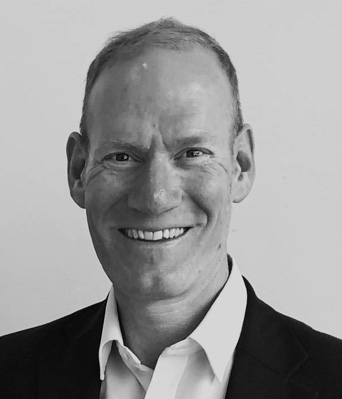
David Tidhar is the chairperson for the 7th CWW Conference Scientific Advisory Committee (SAC). He is a biodiversity specialist who has been working on global renewable energy projects on behalf of project developers, owner-operators, lenders and stakeholders since 2005. David served on the SAC for the 5th and 6th CWW conferences and is passionate about expanding the relevancy of the event for new and emerging markets, and increasing international industry and stakeholder participation. David serves as Biodiversity Manager for Masdar Clean Energy, a leading developer and operator of utility-scale renewable energy projects, community grid projects, and energy services consultancy.
Date: Friday, 22 September 2023
Time: 11:00 – 11:10
Keynote speech:
INCREASING CONNECTION AND LEARNINGS IN THE INTERNATIONAL STUDY OF WIND ENERGY AND WILDLIFE
by Taber Allison, REWI
In Europe and the U.S., researchers in wind energy and wildlife regularly gather to share the latest scientific results to better understand the risk of on and offshore wind energy to wildlife and how to mitigate that risk. Despite important differences in the natural and regulatory environment, common themes have emerged. These themes have informed what we know and have influenced how we manage the necessary growth of wind energy to mitigate the great risk of global climate warming to wildlife while simultaneously minimizing the risks of that growth to wildlife. In the U.S., the bi-annual Wind-Wildlife Research Meeting (WWRM) has alternated with the Conference on Wind Energy and Wildlife. The two meetings attract largely different audiences, but there is an overlap in participation and presentation of research from both sides of the Atlantic in the different meetings. Organizers of both meetings realize that the potential connections between the two meetings could be improved, and there is an opportunity to carry over themes and research outcomes from one meeting to the next. In this presentation, I will describe major themes that have emerged from the most recent WWRM meetings, integrate those with the themes of the recent CWW meetings, and propose recommendations for how the two meetings moving forward, can build on and continue our work.
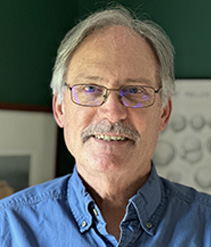
Dr. Taber Allison is an ecologist with special expertise in wind-wildlife impacts. He joined REWI (formerly AWWI) in December 2010 to direct REWI’s research initiatives. Previously, Taber was Vice President for Conservation Science at the Massachusetts Audubon, where he led Mass Audubon’s science team supporting Mass Audubon’s Advocacy, Education, and Land Protection and Management Programs, as well as the organization’s environmental evaluation of wind energy and climate change. Taber’s work experience includes Program Officer at the National Science Foundation, Director of the Rocky Mountain Biological Laboratory, and faculty appointments at The Ohio State University and the University of Colorado. Taber has served on the Scientific Advisory Committee of the Bats and Wind Energy Cooperative. He holds a Ph.D. in Ecology from the University of Minnesota, a Master’s in Forest Science from the Yale School of Forestry and Environmental Studies, and a B.A. degree in Biology from Wesleyan University.
Date: Friday, 22 September 2023
Time: 11:00 – 12:00
Sep 8-12, 2025
MORE INFO
Abstracts & Sponsoring e-mail: info@cww2023.org
Registration & Accommodation e-mail: jelena.vitanovic@spektar-holidays.hr
Please subscribe to our newsletter to ensure you receive all the timely information (programme and abstract submission availability, news, notifications etc.) about the conference!

